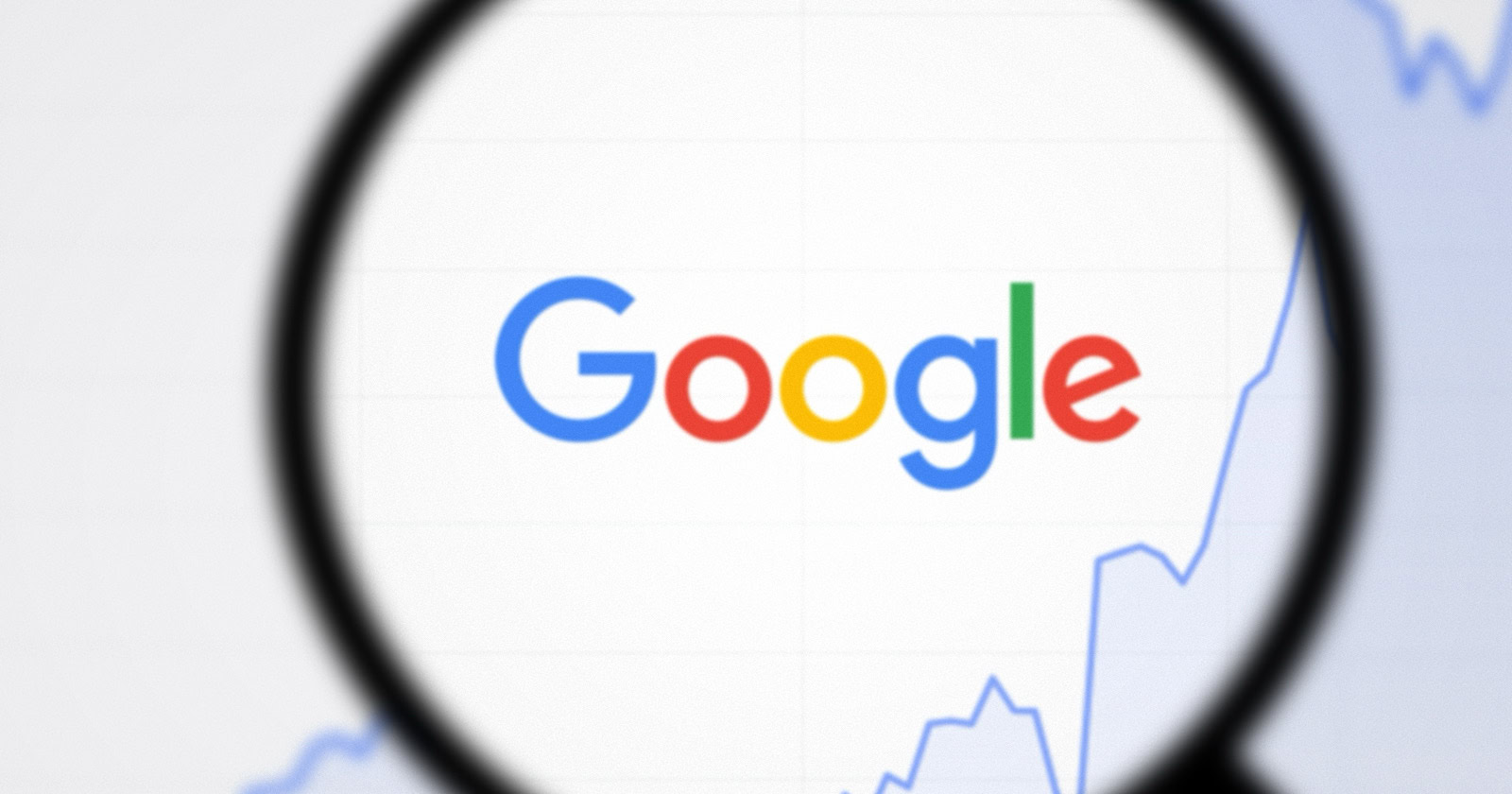WordPress Proposes Blocking Google’s FLoC


WordPress discussed a proposal to block Google’s new user tracking scheme called FLoC. While most expressed support others raised valid concerns. No decision has been made to block FLoC. Discussions will continue in the official WordPress Slack channel.
Google FLoC
Being able to track what people are interested in by using third party cookies is lucrative for Google. Ads targeted by user interest are said to convert at a higher rate are are thus more valuable to both advertisers and Google because these kinds of ads can be sold at a premium.
But third party cookies are going away because many browsers are already blocking them automatically.
Google responded to the slow death of third party cookie tracking by rolling out a new way to track users called, Federated Learning of Cohorts (FLoC).
Advertisement
Continue Reading Below
FLoC is an anonymous way to assign an interest to people based on their browsing patterns. Those browsing patterns are used to categorize users into user interest buckets.
Competitors and Privacy Groups React with Alarm
That has inspired alarming articles from sites like the Electronic Frontier Foundation which decried it as “terrible idea.”
Competitors to Google and it’s Chrome browser (Brave, DuckDuckGo, and Vivaldi) have also taken action to block FLoC and render it unable to track users.
They have called FLoC “nasty” and claim that it enables “discrimination” and is a “dangerous step that harms user privacy.”
Developers have also already published two plugins that block FLoC from WordPress.
Discussions at WordPress to Block FLoC
As mentioned earlier, no firm decision has been made to block FLoC. The official WordPress core developers are discussing a proposal to block FLoC. So it’s not a done deal.
Some in the developer community questioned the suggestion of adding FLoC blocking to previous older versions of WordPress that publishers are still using, citing that it might undermine trust.
Advertisement
Continue Reading Below
“Love the feature idea, it will need work. Practically it won’t be easy to back port, it has potential to damage the trust in automatic updates.”
Someone else agreed that FLoC should be treated as a security update but that they had concerns about making the opt-out something noticeable and with a clear explanation of what WordPress is doing.
This is an important point because some users may want to opt back in if opting out impacts their ad revenue earnings through the Google AdSense program.
They commented:
“It makes sense to treat it as a security, matter. And, in principle, I agree with @roytanck that it should add the opt-out header by default, but seeing there is (kinda) a tradition in WordPress to let the user decide and if it is not opt-out by default, WP should highlight this issue and present it in a very clear noticeable… notice when the update is released and a very clear help message in the settings pages in the future versions.”
However others questioned the reasoning behind calling this a security update.
“While I agree with the overall sentiment here, I think it is a mistake to treat this as a security update and risks abusing user trust in automatic updates. To call it a security update appears to me to be intentionally misusing the term in order to roll it out via automatic updates.
The implicit contract with users for security autoupdates is that they are used in order to protect the user from their site …being compromised imminently. This isn’t the case with FLoC, and may in some cases damage the site’s behaviour.”
That commenter followed up by labeling the action against FLoC a political statement and questioned calling it a security update:
“I’m on board for the political statement of countering Chrome’s encroachment on privacy, as well as the alignment of this with WP’s values generally, but making this change as a “security” update is a step too far.”
Advertisement
Continue Reading Below
That person wasn’t alone in questioning calling it a security threat.
Someone else asked:
“Can someone even explain, providing concrete facts not just assumptions, as to how having a browser be part of a group of hundreds of thousands of similar other browsers for a week is a security threat?”
Another commenter similarly questioned calling this a security threat:
“If WordPress treats FLoC as a security concern, how would it justify letting users opt in? Security fixes are unilateral by definition, users don’t get to opt back in to the threat that was eliminated.”
Someone else questioned blocking FLoC while historically turning a blind eye to the arguably more invasive third party cookies.
“Where do we draw the line at what WordPress should be blocking in core for privacy?
Should WordPress block ALL third party tracking cookies like Facebook too?”
It was also suggested later on that this may be an issue for the individual to deal with, not for WordPress, similar to how WordPress is neutral about third party tracking cookies.
Advertisement
Continue Reading Below
They commented:
“This sounds like an individual privacy concern, and not something that WordPress – as a neutral publishing platform that can be used to share whatever where ever you want, should take a stance on.
WordPress doesn’t block other forms of browser tracking, why should this be any different? WordPress allows you to use an unscrupulous ad provider on your site, but importantly it doesn’t prevent you from using it either.”
WordPress Proposal on FLoC
Changes to WordPress are discussed within the developer community, sometimes beginning with a proposal. Proposals are not always carried out.
It may be misinformation and clickbait to claim that WordPress has made a firm decision to block FLoC. There are many technical issues to be worked out such as whether or not this is a security issue, whether it should be backported to earlier versions of WordPress (as a “security fix”) as well as deciding whether it’s even WordPress’ place to take a stand against FLoC seeing how WordPress was neutral about third party tracking.
Advertisement
Continue Reading Below
Nevertheless, blocking FLoC appears to have overwhelming support both inside the core developer group and anecdotally outside it in the general WordPress developer community.
How to disable FLoC in @WordPress https://t.co/emgRqU3rkR pic.twitter.com/WY6eR3RZc6
— Jon Henshaw (@henshaw) April 18, 2021
Citations
WordPress Proposal Discussion
Proposal: Treat FLoC as a security concern
Electronic Frontier Foundation
Google’s FLoC Is a Terrible Idea
DuckDuckGo Publishes a Browser Extension to Block FLoC
Google Warns About Misuse of Its Indexing API

Google has updated its Indexing API documentation with a clear warning about spam detection and the possible consequences of misuse.
Warning Against API Misuse The new message in the guide says:
“All submissions through the Indexing API are checked for spam. Any misuse, like using multiple accounts or going over the usage limits, could lead to access being taken away.”
This warning is aimed at people trying to abuse the system by exceeding the API’s limits or breaking Google’s rules.
What Is the Indexing API? The Indexing API allows websites to tell Google when job posting or livestream video pages are added or removed. It helps websites with fast-changing content get their pages crawled and indexed quickly.
But it seems some users have been trying to abuse this by using multiple accounts to get more access.
Impact of the Update Google is now closely watching how people use the Indexing API. If someone breaks the rules, they might lose access to the tool, which could make it harder for them to keep their search results updated for time-sensitive content.
How To Stay Compliant To use the Indexing API properly, follow these rules:
- Don’t go over the usage limits, and if you need more, ask Google instead of using multiple accounts.
- Use the API only for job postings or livestream videos, and make sure your data is correct.
- Follow all of Google’s API guidelines and spam policies.
- Use sitemaps along with the API, not as a replacement.
Remember, the Indexing API isn’t a shortcut to faster indexing. Follow the rules to keep your access.
This Week in Search News: Simple and Easy-to-Read Update

Here’s what happened in the world of Google and search engines this week:
1. Google’s June 2024 Spam Update
Google finished rolling out its June 2024 spam update over a period of seven days. This update aims to reduce spammy content in search results.
2. Changes to Google Search Interface
Google has removed the continuous scroll feature for search results. Instead, it’s back to the old system of pages.
3. New Features and Tests
- Link Cards: Google is testing link cards at the top of AI-generated overviews.
- Health Overviews: There are more AI-generated health overviews showing up in search results.
- Local Panels: Google is testing AI overviews in local information panels.
4. Search Rankings and Quality
- Improving Rankings: Google said it can improve its search ranking system but will only do so on a large scale.
- Measuring Quality: Google’s Elizabeth Tucker shared how they measure search quality.
5. Advice for Content Creators
- Brand Names in Reviews: Google advises not to avoid mentioning brand names in review content.
- Fixing 404 Pages: Google explained when it’s important to fix 404 error pages.
6. New Search Features in Google Chrome
Google Chrome for mobile devices has added several new search features to enhance user experience.
7. New Tests and Features in Google Search
- Credit Card Widget: Google is testing a new widget for credit card information in search results.
- Sliding Search Results: When making a new search query, the results might slide to the right.
8. Bing’s New Feature
Bing is now using AI to write “People Also Ask” questions in search results.
9. Local Search Ranking Factors
Menu items and popular times might be factors that influence local search rankings on Google.
10. Google Ads Updates
- Query Matching and Brand Controls: Google Ads updated its query matching and brand controls, and advertisers are happy with these changes.
- Lead Credits: Google will automate lead credits for Local Service Ads. Google says this is a good change, but some advertisers are worried.
- tROAS Insights Box: Google Ads is testing a new insights box for tROAS (Target Return on Ad Spend) in Performance Max and Standard Shopping campaigns.
- WordPress Tag Code: There is a new conversion code for Google Ads on WordPress sites.
These updates highlight how Google and other search engines are continuously evolving to improve user experience and provide better advertising tools.
AI
Exploring the Evolution of Language Translation: A Comparative Analysis of AI Chatbots and Google Translate

According to an article on PCMag, while Google Translate makes translating sentences into over 100 languages easy, regular users acknowledge that there’s still room for improvement.
In theory, large language models (LLMs) such as ChatGPT are expected to bring about a new era in language translation. These models consume vast amounts of text-based training data and real-time feedback from users worldwide, enabling them to quickly learn to generate coherent, human-like sentences in a wide range of languages.
However, despite the anticipation that ChatGPT would revolutionize translation, previous experiences have shown that such expectations are often inaccurate, posing challenges for translation accuracy. To put these claims to the test, PCMag conducted a blind test, asking fluent speakers of eight non-English languages to evaluate the translation results from various AI services.
The test compared ChatGPT (both the free and paid versions) to Google Translate, as well as to other competing chatbots such as Microsoft Copilot and Google Gemini. The evaluation involved comparing the translation quality for two test paragraphs across different languages, including Polish, French, Korean, Spanish, Arabic, Tagalog, and Amharic.
In the first test conducted in June 2023, participants consistently favored AI chatbots over Google Translate. ChatGPT, Google Bard (now Gemini), and Microsoft Bing outperformed Google Translate, with ChatGPT receiving the highest praise. ChatGPT demonstrated superior performance in converting colloquialisms, while Google Translate often provided literal translations that lacked cultural nuance.
For instance, ChatGPT accurately translated colloquial expressions like “blow off steam,” whereas Google Translate produced more literal translations that failed to resonate across cultures. Participants appreciated ChatGPT’s ability to maintain consistent levels of formality and its consideration of gender options in translations.
The success of AI chatbots like ChatGPT can be attributed to reinforcement learning with human feedback (RLHF), which allows these models to learn from human preferences and produce culturally appropriate translations, particularly for non-native speakers. However, it’s essential to note that while AI chatbots outperformed Google Translate, they still had limitations and occasional inaccuracies.
In a subsequent test, PCMag evaluated different versions of ChatGPT, including the free and paid versions, as well as language-specific AI agents from OpenAI’s GPTStore. The paid version of ChatGPT, known as ChatGPT Plus, consistently delivered the best translations across various languages. However, Google Translate also showed improvement, performing surprisingly well compared to previous tests.
Overall, while ChatGPT Plus emerged as the preferred choice for translation, Google Translate demonstrated notable improvement, challenging the notion that AI chatbots are always superior to traditional translation tools.
Source: https://www.pcmag.com/articles/google-translate-vs-chatgpt-which-is-the-best-language-translator















